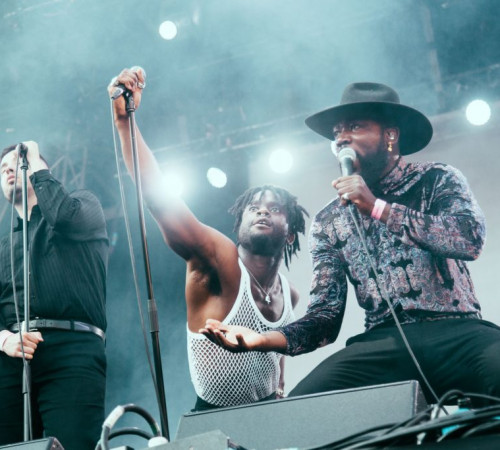THE definition of a rockstar is always aimlessly used in the music industry, but if there was one that anybody had to throw it at, it would be Lemmy. He spent years chugging amphetamines, speed, tranquillisers, as well as his regularly confessed admiration for alcohol, while touring the world with a different frenetic-laden hard rock n’ roll album every year. Lemmy wasn’t scared of death, he knew it was coming – it was something to him that was “inevitable”. And while he sat at the Rainbow on the Sunset Strip playing his beloved video game, it unveiled the laid back side to Lemmy, where he would quietly smoke his cigarettes and drink his liquor.
Aside his avid gaming, he would be in the studio recording with Motörhead or even hooking up a collaboration with some of the biggest names in rock. He developed the band’s live stature into one of the most sought, and was there right to the end. And in the midst of drug charges, miscalculated sexual encounters and various media discrepancies about his life, we look at five sections of a historic career that define Lemmy as an iconic figure in the world of music that was instantly grieving at his sudden departure.
When It Started: Becoming a Roadie For Jimi Hendrix
After having girls chasing him around the school playground and joining his first semi-successful band, The Rockin’ Vickers, Lemmy moved to London in a hope of further musical success away from the Vickers. Instead, he moved in with Noel Redding, the bassist of The Jimi Hendrix Experience, where he became a roadie for the band until the very end. It introduced Lemmy into the world of the burgeoning music business, where Hendrix began a friendship with Kilmister. It was from there that Lemmy went onto acid and learned how to function on the drug. It was where it all started for him, and led him to the path of acid rock band Hawkwind.
“In case you don’t know, we are Motörhead”
When Motörhead broke onto the scene in 1976 with their heavy dose of speed metal, it was a vibrant, spine-chilling concoction that was essentially ear-blistering. There was nothing like it at the time, and it made punk look like Saturday Night Fever. Lemmy always maintained that Motörhead were never metal nor punk – not even in the middle. They were “loud rock n’ roll”, and in its simplicity influenced numerous bands across several genres. The sex, drugs and rock n’ roll turned Lemmy into an icon, and Motörhead were the naughtiest rock band of them all. Lemmy wasn’t bothered by all the fame, once stating that “people want to become famous and then bitch and moan about it – what’s the point?”
The band became renowned for their chaotic shows and blisteringly deafening performances, with sound levels exceeding 120dB. His humour was always prominent in a live show: at Brixton in 2000 to celebrate their 25thanniversary as a band, Lemmy said “just in case you’re at the wrong gig, we are Motörhead – and we’re going to clean your clogs.” And they done that for 40 years, releasing 23 albums, ten live recordings (including the sublime No Sleep ’til Hammersmith), and touring endlessly for all their stalwart fans.
Lemmy’s toxic body
It’s no secret that Lemmy dabbled with alcohol and drugs. The man himself was fired from Hawkwind in 1975 after trying to smuggle amphetamines down his trousers through the Toronto border. His involvement with the police through drugs continued while in Hawkwind after an incident when he and a friend were almost caught splitting pills in a car. This provoked the two to stuff the pills in their mouths without the police finding out, almost killing the rockstar. But it’s the years of opting for speed instead of cocaine – “don’t do cocaine, do speed instead; it’s better for you,” he once said in his own movie – that kept him going. Even a considered blood transfusion was denied by doctors when they claimed that new blood would actually kill him. 36 years later, he was still roaring at the top of the pile of rock.
The medical mystery that is Lemmy
Towards the end of his life, some live shows had to be cancelled due to Lemmy’s deteriorating health. It was only in 2011, when Lemmy was almost 66, that the Motörhead frontman had concerns about his well-being. Even though he had to be fitted with a defibrillator along with the decision to massively scale down smoking and change drink choice, the band would remain touring around the globe, playing to tens of thousands wherever they travelled. Lemmy didn’t slow down entirely, but he took precautions to do what he loved most for as long as he possibly could even though death was inevitable – playing music. It was perhaps fortunate that bad news struck later so he could squeeze in a debut Glastonbury appearance in 2015 before his passing.
The influencer of many
It would be unfair to say that it’s just Lemmy that has influenced generations of rock bands after Motörhead’s early glory years, because his band mates – his dear friends – are to be applauded for the chemistry they piped up together. The condolences from many musical public figures said it all: from Ozzy Osbourne to Cage the Elephant, Alice Cooper to Foo Fighters. It was some of these names he worked with. Lemmy would write songs for Ozzy Osbourne, most notably ‘Hellraiser’ from Ozzy’s 1991 album No More Tears. Dave Grohl would regularly go to Lemmy for collaborations and drum parts for the newest Motörhead album, as well as advice. Metallica were perhaps the biggest disclosed fans of the band and Lemmy, by inviting him on stage for a song or covering a selection of Motörhead songs for their cover album Garage Inc. It’s the music where Lemmy will be a continuing influence forever.
Lemmy began to fall in recent months, his health heavily deteriorating forcing him to sit on the sidelines of a 70th birthday party thrown to honour him earlier this month; something the hellraising Lemmy of the past would never dreamed of.
Speaking of his final moments in the spotlight, Motörhead’s manager of 24 years Todd Singerman said: “He did no more soundchecks. He wouldn’t do interviews. He couldn’t do anything.
“But to think of the balls it took to still play shows for the fans, to do the last show two weeks ago – and then drop? That’s like a Rocky story to me. Courage at its best.
“He was dying. He didn’t know it, but his body must have felt it. He had nothing left.”
Lemmy fell asleep and died but his legend will go on forever.









